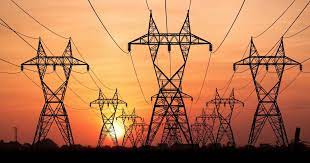The poor state of electricity in Nigeria adds 40 per cent to the cost of manufactured products, a new report by Nanyang Technology University’s Centre for African Studies has stated.
The author and Director of the Centre, Amit Jain, recently presented the 150-page study titled “Back to Growth: Priority Agenda for the Economic Revival of Nigeria” in Lagos.
The manufacturing sector, according to the paper, has far higher productivity than agriculture and can accommodate a bigger share of the workforce.
According to the report, a top-line examination of Nigeria’s business climate revealed that the country lacked many of the elements needed to attract investment in the manufacturing sector.
For manufacturing to be competitive, the report said economic activity should, at least to begin with, not deviate too far from the country’s comparative advantage.
The report read in part, “Lack of electricity adds 40 per cent to the cost of everything in Nigeria. That hurts manufacturing the most. Firms suffer from an acute shortage of power supplies.
“Electricity blackouts, together with transport bottlenecks, crime, and corruption, are among the key impediments to firm growth. Outages and voltage fluctuations are commonplace.
“This damages machinery and equipment. Consequently, most firms rely on self-supply of electricity through the use of generators, which increases the cost of production and erodes competitiveness.”
Since guaranteeing uninterrupted power supply across the country is likely to be difficult, the report recommended that the government should consider developing industrial clusters.
According to the report, the main benefit of clustering firms is that it allows for infrastructural provision to be prioritised to give firms a competitive edge while offering access to raw materials, skilled labour, technology, and materials.
It read further, “The clusters should ideally be located within zones that are well connected with roads, power lines, and telecommunications.
“Although Nigeria has scored some success with informal clusters, such as the computer village in Otigba, Lagos; the auto and industrial spare parts fabricators in Nnewi; the leather tannery in Kano; and the footwear, leatherworks, and garment cluster in Aba, very few are working to their full potential.
“Lack of coordination between the federal and state governments and patchy implementation of industrial policy has meant that the infrastructure required to attract manufacturing investment is inadequate.”
In June, the Manufacturers Association of Nigeria said the country’s shortage of electricity supply had been identified as a hindrance to the profitability of manufacturers, with an annual economic loss valued at about N10.1tn, about two per cent share of the country’s Gross Domestic Product.


